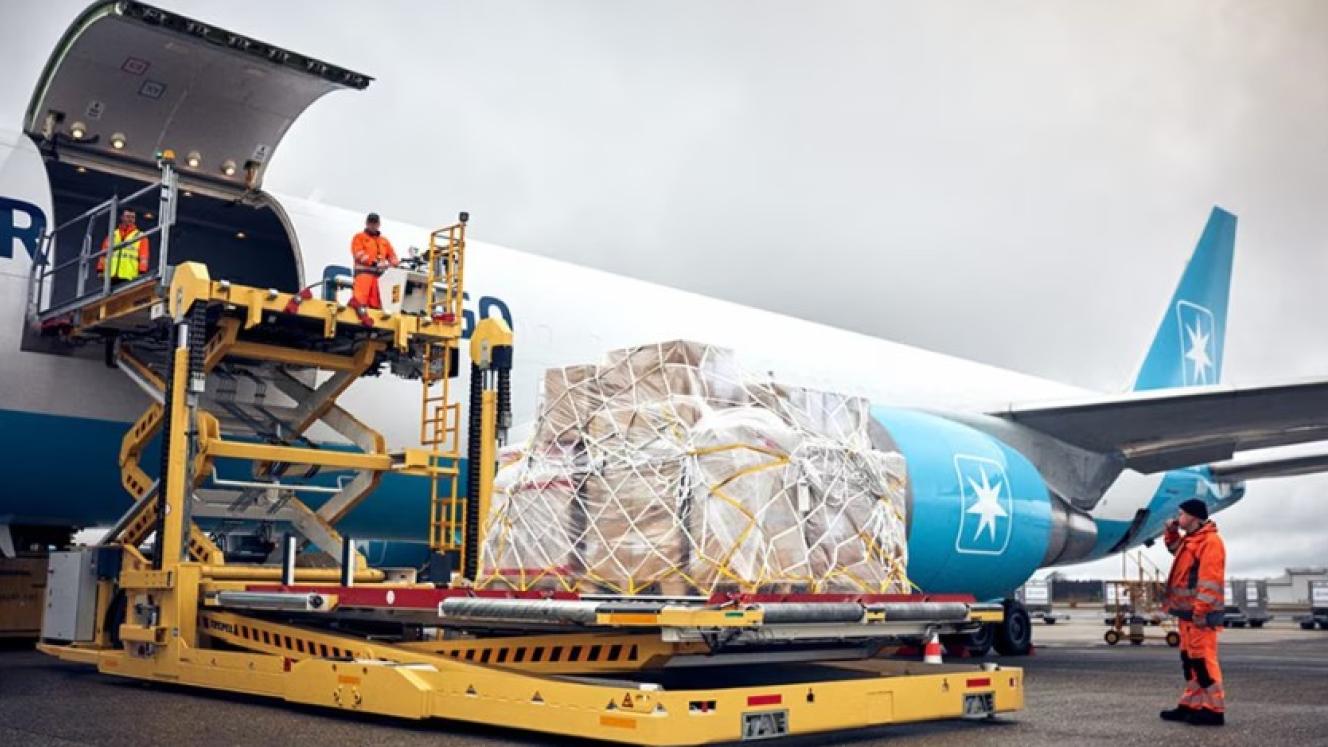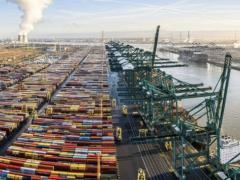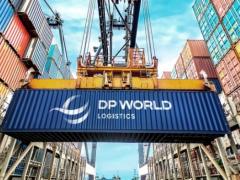Inflation and geopolitical tensions were set to dominate concerns for the global supply chain over the next five years, DP World said on the first day of its inaugural Global Freight Summit in Dubai.
The Emirati logistics multinational surveyed dozens of freight forwarders in October and found disconcerting evidence of uncertainty and unease about the immediate future.
Its study paints a stark picture of an industry in turbulence, with climate change and access to talent weighing heavily on business resilience and the ability to create seamless supply chains.
Some 63% of the respondents said inflation was a main concern, while 56% cited geopolitical tensions as another major cause of concern.
The findings of the survey were showcased at the Summit, a three-day conference that brings together industry experts, leaders and innovators under one roof to share knowledge and focus on how data can improve connectivity in global supply chains.
The event was inaugurated by Sheikh Ahmed bin Saeed Al Maktoum, president of the Dubai Civil Aviation Authority, chairman and CEO of Emirates airline and group, and chair of the World Logistics Passport (WLP) Global Steering Group.
It was attended by Sultan Ahmed Bin Sulayem, Group Chairman and CEO of DP World, as well as members of the Digital Freight Alliance (DFA).
Current challenges, the DP World study found, were having major ramifications for businesses.
About 10% of the respondents said they had changed the markets in which they did business due to uncertainty.
Indeed, these worries looked set to dominate the thoughts of freight forwarders for years to come, a company statement said.
Some 78% said they expected geopolitical tensions and inflation to remain concerns over the next five years, with two-thirds (66%) of freight forwarders believing it is ‘impossible to say’ when economic disruptions will subside.
Encouragingly, many in the supply chain industry appear cautiously optimistic. Three-quarters (75%) of the respondents said they expected technology to be a significant factor in easing the current supply chain woes.
In fact, more than half (56%) believe digitalisation will be the single biggest driver of efficiency, reducing bottlenecks and supporting the industry. Technology will have a considerable impact on the supply chain, with three in four saying it will lead to cost savings and a greater ability to target and deliver to new customers.
But many were unclear on how to integrate technology into their industry, with a third saying they wanted to, but simply did not know how to do it. It is unsurprising then that half of the freight forwarders said they were further behind on their company’s digital transformation journey than they had hoped.
“Global supply chains are significantly impacted by the pandemic, geopolitical tensions, and the looming threat of the global climate change crisis. In fact, these challenges have demonstrated that many parts of the global supply chain infrastructure are fragile.
“These rising concerns make it imperative for logistics operators to come up with the tools and solutions that offer real-time visibility across the entire supply chain. This can allow trade routes to be fit for purpose, thus facilitating a more seamless movement of trade around the globe,” Sulayem said.













